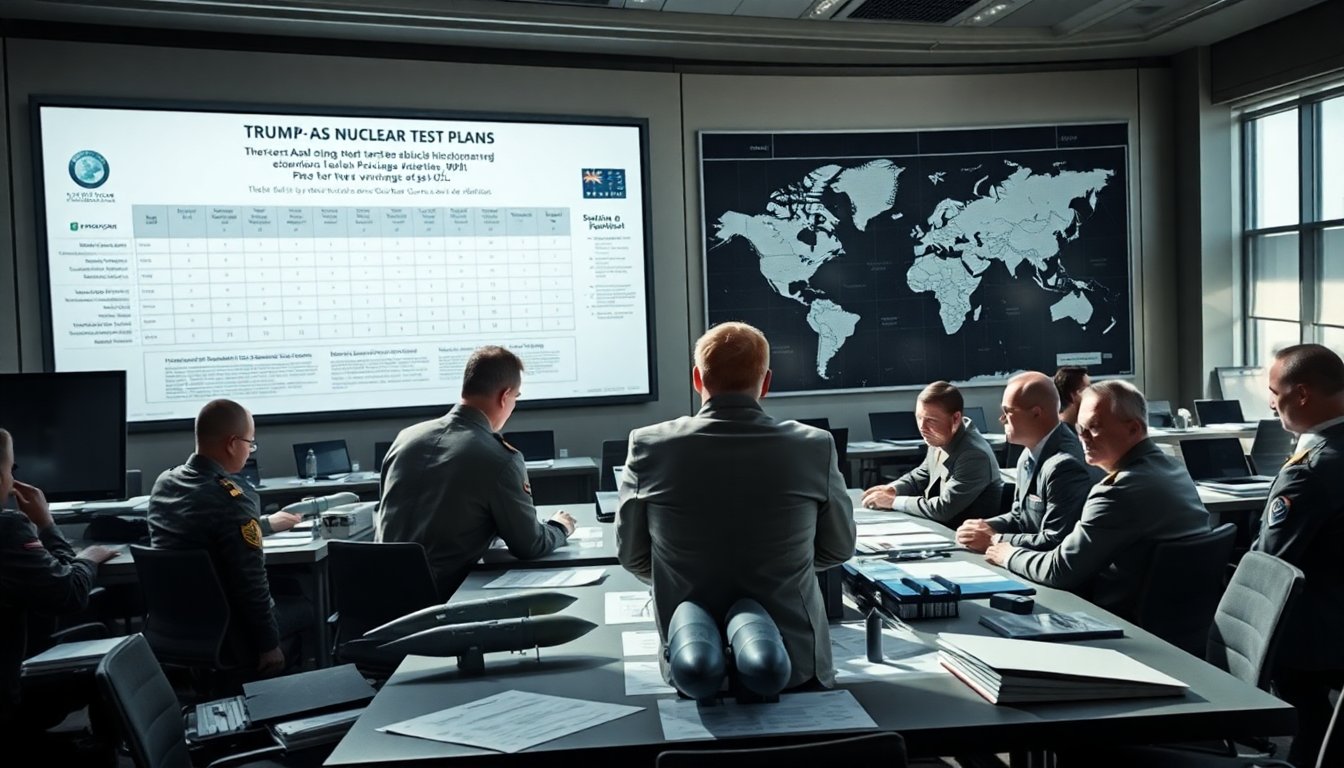Table of Contents
In a significant development, President Donald Trump has directed the Pentagon to resume nuclear weapons testing. This decision represents the first instance of the United States engaging in such testing since 1992, during a time when global efforts have focused on nuclear restraint. Trump’s announcement coincides with his upcoming meeting with Chinese President Xi Jinping, highlighting the complex interplay between military actions and diplomatic negotiations in the current geopolitical climate.
Background of nuclear testing in the U.S.
The last nuclear test conducted by the United States occurred in Nevada over thirty years ago. Following the Cold War, President George H.W. Bush established a moratorium on nuclear testing. This initiative aimed to promote international arms control and reduce the nuclear threat. Nonetheless, recent global political tensions have prompted the current administration to reassess this position.
Former President Trump’s remarks, made via a post on Truth Social, highlighted the necessity for the U.S. to evaluate its nuclear capabilities “on an equal basis” with countries such as China and Russia. This statement raises significant concerns regarding the potential consequences of this policy shift. Notably, Russia has not conducted a nuclear test since 1990, and China’s last test occurred in 1996.
Implications of the renewed testing
The resumption of nuclear testing carries significant implications for U.S. military policy and global stability. Analysts suggest that this decision may trigger a new arms race, encouraging other nations to expedite their nuclear programs. For instance, China has been actively increasing its nuclear capabilities in recent years. A renewed U.S. focus on testing could further intensify these developments.
Military experts highlight that the phrase “on an equal basis” may indicate a shift in the U.S. approach to military readiness relative to other nations. The Pentagon has not provided details regarding the timeline or specifics of potential tests, leaving many to speculate about the underlying motivations for this directive.
Current U.S.-China relations and military strategy
As discussions between U.S. President Donald Trump and Chinese President Xi Jinping approach, the implications of nuclear testing plans emerge as a critical issue. Ongoing trade tensions and security disputes in regions such as the South China Sea have contributed to an increasingly volatile environment. The Trump administration has expressed significant concerns regarding China’s military expansion and assertiveness.
In conjunction with the announcement of nuclear testing, reports indicate planned U.S. military exercises aimed at showcasing strength and resolve. These maneuvers may incorporate missile launches as a direct response to perceived threats from China. Such actions could exacerbate tensions between the two nations, potentially disrupting the balance of power in the region.
Future considerations for U.S. policy
The potential resumption of nuclear testing introduces critical questions about the trajectory of U.S. foreign policy. Will this strategy bolster national security, or will it escalate tensions globally? The reactions of international leaders will play a significant role as they evaluate the ramifications of America’s renewed nuclear stance.
Additionally, engaging in nuclear testing could alter the dynamics of arms control discussions. Nations advocating for disarmament and nuclear non-proliferation may encounter challenges in negotiations, especially if the United States is actively conducting weapons tests.
President Trump’s directive to the Pentagon to reinstate nuclear weapons testing marks a significant juncture in U.S. military history. The global community is closely monitoring this decision, as its implications may influence international relations for the foreseeable future.


